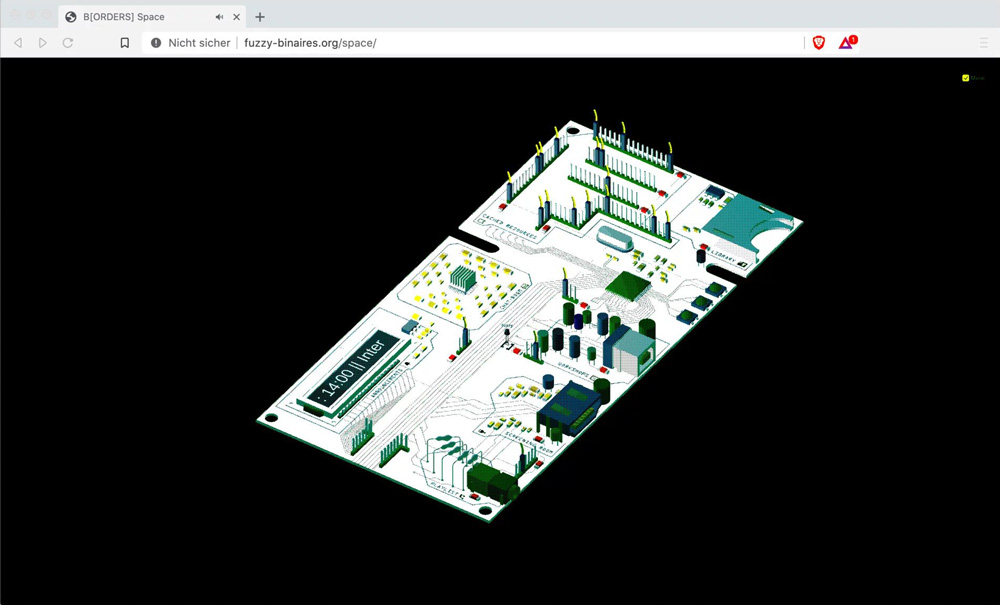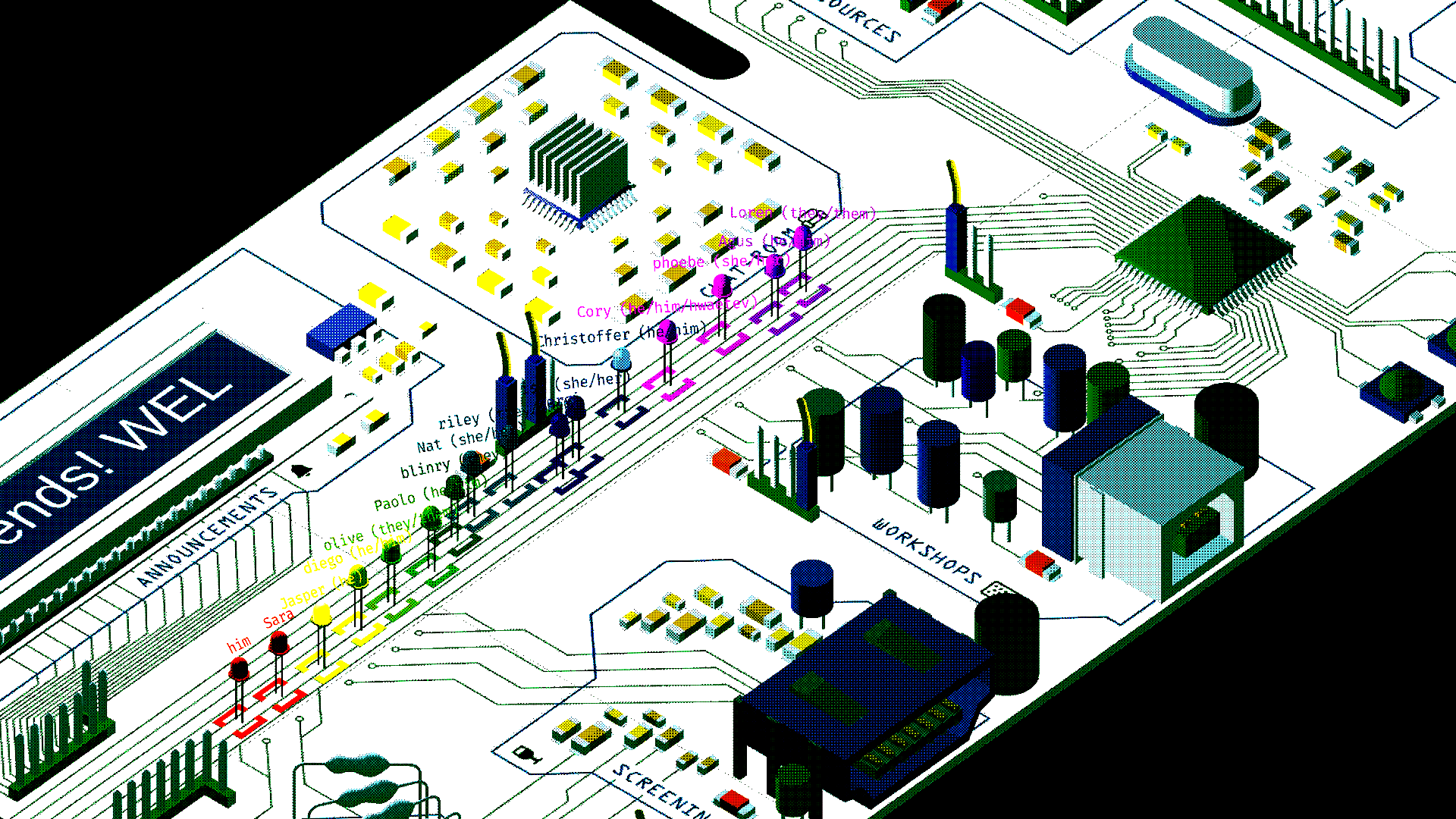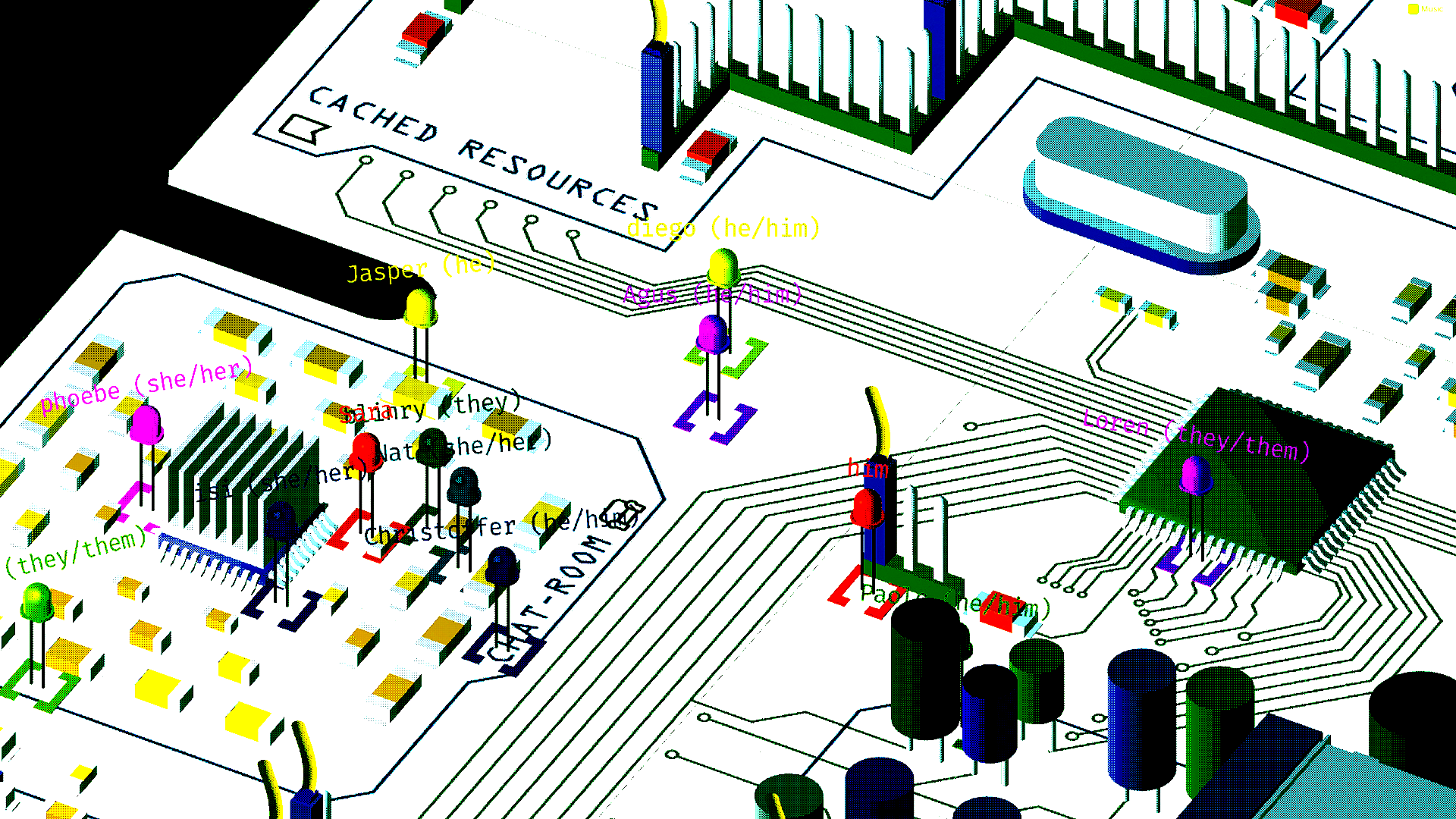B[ORDERS]

A playful web space for participants of a hacking week to meet on, 2020, with Fuzzy Binaires
B[ORDERS] was an online interdisciplinary workshop program that took place online from July 26 to August 2 2020 and was kindly funded by Hauptstadtkulturfonds Berlin. It was run by the techno-artistic collective Fuzzy Binaires – Agustín Ramos Anzorena, Iz Paehr and Diego Valverde Garro. In an open call, we asked: What are the relations between technology, orders and borders? What can be learned from taking positions that refuse the logic of physical and digital borders?
Virtually situated in Berlin, the second most surveilled city in the EU, we wished to create a playful space-time for decolonial, resistant computing projects. This workshop week brought together 17 international artists, designers, programmers, researchers, theorists, tinkerers. Throughout the week, each participant presented a workshop, talk or group activity on a topic they felt passionate about.
During B[ORDERS] we researched how and, along the axis of presumed nationality, ethnicity, gender, class, disability etc. for whom, access is restricted by governments and corporations on the world wide web and its commercial subnets today. How are current digital networks materially, geographically, politically and technically constructed? Which imaginaries of borders exist within computer science, arts, theory and design? Are borders also spaces of exchange and communication, for example when they present themselves as interfaces between differently programmed systems? In workshops, we traced the physical artefacts of local network structures such as antennas, cables and surveillance infrastructures. By teaching the basics of programming we aimed to understand how language is ordered to be understood by a machine and which materials are involved in this process.
B[ORDERS] focused on how borders and digital border practices can be named, critiqued, challenged and subverted. We worked with open source tools and developed our own multiplayer collaborative platform.

